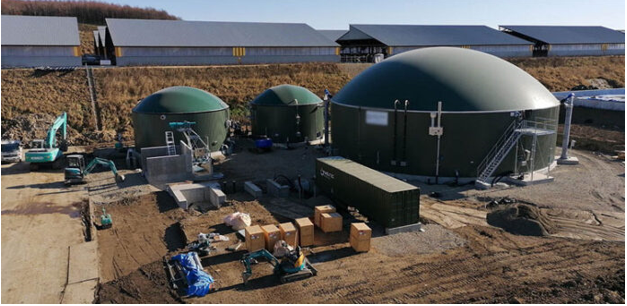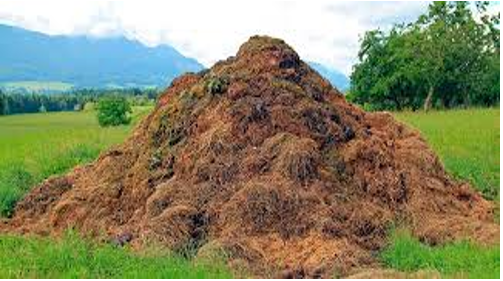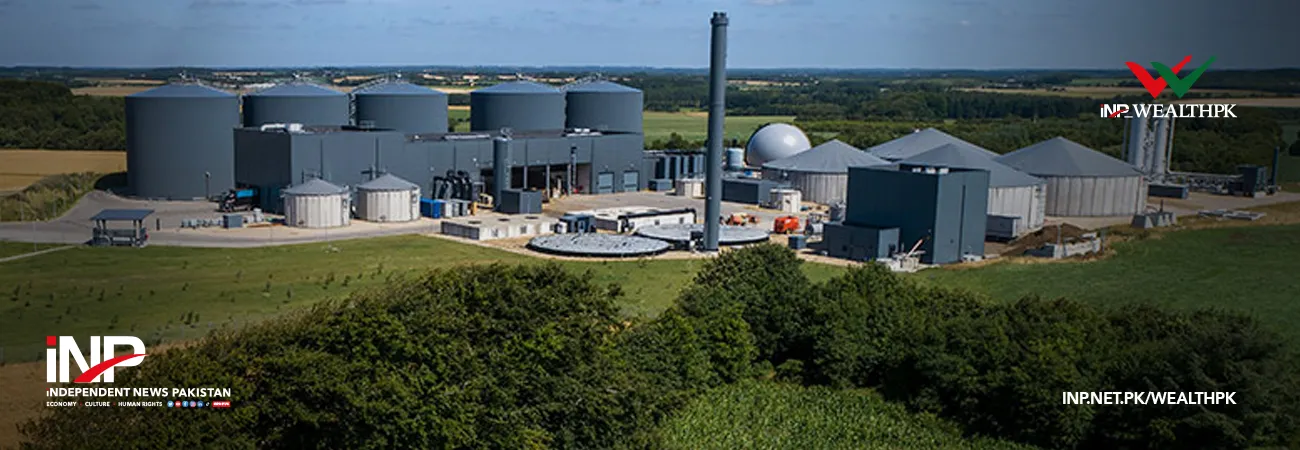INP-WealthPk
Ahmed Khan Malik
The government of Sindh has outlined plans to boost biogas production to speed up the province’s transition to green energy.

“Sindh is taking significant strides to enhance biogas production across the province, aiming to convert organic waste into clean, renewable energy,” Shariq Hussain, Additional Director Sindh Renewable Wing of Energy Department, told WealthPK.
He said that with growing energy demand and increasing environmental concerns, the shift toward biogas is seen as a crucial step in Sindh’s green energy transition.
He said that one of the most ambitious projects is being developed in Karachi’s Bhains Colony, the world’s largest buffalo colony, which produces nearly 6,000 tonnes of animal waste daily.

“The Sindh Solid Waste Management Board has finalised plans to build two large-scale biogas plants in the area,” he added. “These plants will utilise both animal waste and municipal garbage to generate biogas, helping to curb environmental pollution and provide affordable energy to nearby communities,” he said. In addition, Shariq Hussain said Pakistan’s largest biomethane plant was recently inaugurated in Gadap Town.
“The facility is designed to produce up to 23,000 cubic meters of biomethane per day using cow and buffalo dung. It will also be capable of generating 4-5 megawatts of electricity, with heat and ash byproducts repurposed for brick manufacturing.” “The Sindh government has supported the project by offering financial assistance through the Sindh Enterprise Development Fund,” Shariq Hussain added.
Shariq said that a pilot biogas project had been launched to encourage small-scale waste-to-energy solutions in Karachi’s District South. “The initiative uses a bio-dome to convert up to 10 kilogrammes of kitchen and animal waste into approximately three kilogrammes of biogas per day. The remaining waste is turned into organic fertilizer. If successful, similar systems will be introduced in other parts of the city.”
Beyond urban centres, he said that the Sindh Energy Department is also exploring opportunities for domestic biogas plants in rural areas. “Feasibility studies are underway to identify locations in off-grid villages where biogas could serve as a clean alternative to wood and coal for cooking and heating.” About the environmental and economic impact, he said that Sindh’s investment in biogas production is expected to deliver both environmental and economic benefits.
“By reducing reliance on fossil fuels and improving waste management, these projects contribute to cleaner air, reduced greenhouse gas emissions, and improved public health,” he said. “Moreover, these initiatives create job opportunities and support the livelihoods of those in the dairy and waste management sectors,” Shariq Hussain noted.
The additional director of the Sindh Renewable Wing of the Energy Department said that as the province continues to expand its biogas infrastructure, it is positioning itself as a leader in sustainable energy development in Pakistan. “With strong government backing and growing private sector involvement, the future of biogas in Sindh looks promising, which would also tackle the environmental problem,” Shariq said.
Credit: INP-WealthPk













